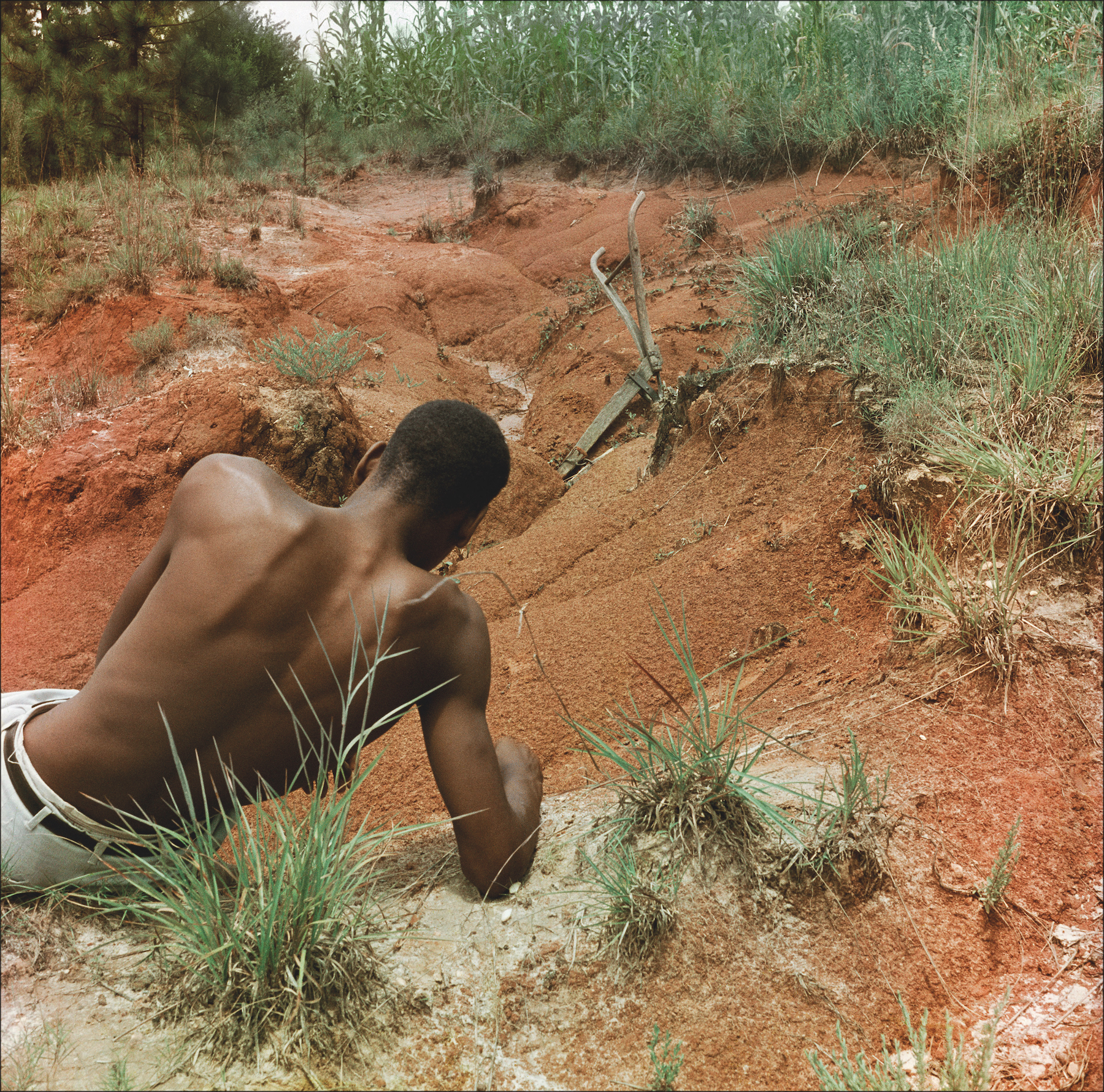Who Is Sam Blow?
By Treasure Shields Redmond

"Untitled, Shady Grove, Alabama," 1956, a photograph by Gordon Parks, from the expanded edition of Gordon Parks: Segregation Story, published in 2022 by Steidl. © The Gordon Parks Foundation
I.
I knowed I could marry Etheldred
when he told me his first name
Sam Blow —
like boiled lavender.
Sam Blow —
like the top of a newborn’s head.
Sam Blow —
like cold fresh well water.
The good ghost my husband kept to himself
II.
That first evening Sam Blow took off my husband.
Set him down like a good coat
Whispered his first name;
Showed me his first self.
We had a lifetime of age difference between us
But Sam Blow was young like me
With a back made of Alabama pine
The holy haint my husband kept to himself
III.
Who is Sam Blow?
He the man who wears my husband
He the man who come out at night
He the man who took his brother’s name after he died
He the man who lost a wife and two chirren in Alabama
He the hurt man who wear Dred Scott like a bandage.
The sweet spirit my husband kept to himself
IV.
I rub pine salve under Dred’s shoulder blades
He say: I left a whole family buried in Huntsville
Didn’t bring nothing with me but this cough
At night Sam Blow reminds Dred that he brought him to St. Louis too
Sam Blow is the first promise Dred ever kept to himself
He say: I’ll never die a slave
He say: I won’t raise no slaves
He say: I’ll buy our freedom
He say: I was shown that the Lord would restore what the locusts have eaten.
V.
When I stood up to marry Dred on free land
in a free state I was a free woman
When I pushed out our first daughter on the Mississippi
I was in water that can’t be owned
I was a free woman birthing a free chile
I broke free water and Dred caught our daughter
in free hands
That baby was a prophecy fulfilled
Charcoal black and looking like her pap
Sad but happy. Hungry but satisfied.
Black and free
VI.
We talked about running.
The widow would not take money for us
She meant to make our babies her pension
She meant to put liens on our work
She meant to rent us til she forgot her name
She meant for us to be listed in her will
Sam Blow came in dreams.
Dressed like a African magistrate
Speaking like the book of judges
Telling Dred to sue for what he already was
I gave birth on the River. The courthouse is on the River.
Sam Blow came up on the River.
It’s got to be a sign.
VII.
The number 11 looks like bars
It’s how long me and Dred were denied
The number 11 looks like Mississippi River banks
That’s how wide our story spread
Dred put his ear to my heart
when he heard we was finally free
The Lord gave back his family
The Lord gave him a bosom of rest
He say: Sam Blow, rest easy now
He say: Sam Blow in the bosom of Abraham now, Harriet
Dred Scott say: I got free, Harriet. And I believe I’ll stay that way.
Treasure Shields Redmond will perform this poem publicly as part of the No Tears Project St. Louis at a set of free community concerts on April 28th and 29th at Jazz St. Louis.
The No Tears Project originated in 2016 when Oxford American commissioned pianist Christopher Parker and vocalist Kelley Hurt to write a sixty-minute composition of new music honoring the Little Rock Nine. Using music and conversation, the project educates and engages communities with stories about civil rights, and strives to create recognition as a precursor to reconciliation. Learn more and reserve tickets for the free concert performance that includes the reading of Shields Redmond’s poem, in addition to the world premiere of new music written by Oliver Lake and Brian Owens at https://oxfordamerican.org/ntp-st-louis.


